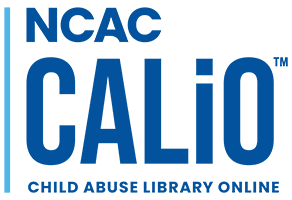Log into CALiO™ or contact the librarians to obtain publications.
Anderson, G. D., Anderson, J. N., & Krippner, M. (2016). "I only want to know what you know": The use of orienting messages during forensic interviews and their effects of child behavior. Journal of Child Sexual Abuse, 25(6), 655-673. DOI:10.1080/10538712.2016.1194356
Brown, D. A., Lewis, C. N., Lamb, M. E., Gwynne, J., Kitto, O., & Stairmand, M. (2019). Developmental differences in children's learning and use of forensic ground rules during an interview about an experienced event. Developmental Psychology, 55(8), 1626-1639. DOI:10.1037/dev0000756
Brubacher, S. P., Poole, D. A., & Dickinson, J. J. (2015). The use of ground rules in investigative interviews with children: A synthesis and call for research. Developmental Review, 36, 15-33. DOI:10.1016/j.dr.2015.01.001
Danby, M. C., Brubacher, S. P., Sharman, S. J., & Powell, M. B. (2015). The effects of practice on children's ability to apply ground rules in a narrative interview. Behavioral Sciences & the Law, 33(4), 446-458. DOI:10.1002/bsl.2194
Dickinson, J. J., Brubacher, S. P., & Poole, D. A. (2015). Children's performance on ground rules questions: Implications for forensic interviewing. Law and Human Behavior, 39(1), 87-97. DOI:10.1037/lhb0000119
Earhart, B., La Rooy, D. J., Brubacher, S. P., & Lamb, M. E. (2014). An examination of "don't know" responses in forensic interviews with children. Behavioral Science & the Law, 32(6), 746-761. DOI:10.1002/bsl.2141
Fessinger, M. B., McWilliams, K., Bakth, F. N., & Lyon, T. D. (2021). Setting the ground rules: Use and practice of ground rules in child forensic interviews. Child Maltreatment, 26(1), 126-132. DOI:10.1177/1077559520910783
Lyon, T. D., & Evans, A. D. (2014). Young children's understanding that promising guarantees performance: The effects of age and maltreatment. Law and Human Behavior, 38(2), 162-170. DOI:10.1037/lhb000061
Magnusson, M., Emberg, E., Landstrom, S., & Akehurst, L. (2020). Forensic interviewer's experiences of interviewing children of different ages. Psychology, Crime, & Law, 26(10), 967-989. DOI:10.1080/1068316X.2020.1742343
Malloy, L. C., Katz, C., Lamb, M. E., & Mungo, A. P. (2015). Children's requests for clarification in investigative interviews about suspected sexual abuse. Applied Cognitive Psychology, 29(3), 323-333. DOI:10.1002/acp.3101
Waterman, A. H., & Blades, M. (2013). The effect of delay and individual differences on children's tendency to guess. Developmental Psychology, 49(2), 215-226. DOI:10.1037/a0028354
